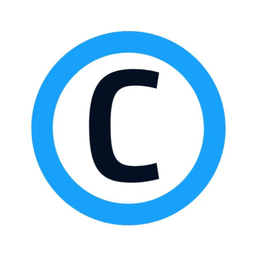
Copyleaks GPT Detection Tool identifies AI-written passages with model-aware signals and clear evidence. Scans estimate likelihood across GPT variants, highlight suspect spans, and link potential sources for overlap. Add-ins and APIs check drafts in LMS, CMS, and document editors without copy-paste. Reports include rationale, thresholds, and reviewer notes so outcomes are consistent and defensible. Batch queues handle high volume while protecting privacy and honoring retention policies.
Evaluate lexical patterns, burstiness, and token distributions tuned for GPT families. Regular updates track shifts in generator behavior to limit false negatives. Context windows reduce over-flagging of short quotes or boilerplate. Score bands communicate certainty without overstating claims, guiding next steps for reviewers. Benchmarks compare signals on recent model releases and paraphrasers, so settings stay effective as patterns evolve.
Color-coded highlights mark passages likely written by AI and show why, including structure and style cues. Side-by-side comparisons reveal overlaps with sources where applicable. Explanations accompany scores to support appeals and second reads. Exportable reports capture the evidence chain so decisions stay transparent over time. Consistency notes separate formatting artifacts from substantive risk, reducing noise on well-structured templates.
Scan submissions directly inside LMS, CMS, and document editors with extensions and connectors. The API enables batch screening at ingestion or pre-publication gates. Role permissions restrict who sees detailed evidence. Event logs show who ran scans and actions taken for auditing and compliance. Webhooks deliver results to case queues or student records, preserving chain of custody without spreadsheets.
Configure institution or newsroom thresholds and require second-reader review above certain bands. Mark quotations and references to avoid penalizing proper attribution. Custom notes record context such as accommodations or permitted edits. Templates standardize communications so outcomes are respectful and clear. Scenario presets tailor guidance for research, exams, take-home assignments, and newsroom policy.
Choose data residency, encryption, and retention options that meet regulatory needs. Exclude sensitive documents from future training and rescind access on request. Single sign-on and granular roles protect confidentiality. Admins can export logs for vendor assessments and audits without exposing submissions. Data deletion windows can be enforced automatically to match institutional or contractual requirements.


Recommended for universities, publishers, certification bodies, and enterprises that need fair, repeatable judgments about authorship. The Copyleaks GPT Detection Tool pairs accuracy with explainable evidence and policy controls. Teachers, editors, and compliance teams save time while keeping decisions transparent. APIs and add-ins fold screening into everyday tools so coverage scales without extra work. Clear thresholds reduce disputes and encourage consistent expectations across classes and departments.
Ad hoc reviews are slow and inconsistent, and accusations without evidence erode trust. The Copyleaks GPT Detection Tool centralizes scanning, explanation, and policy in one workflow. Integrations reduce copy-paste between systems, while reports support appeals and training. Organizations get a fairer, faster process that protects integrity without derailing learning or publishing. Stakeholders understand how conclusions were reached, which improves acceptance and follow-through.
Visit their website to learn more about our product.


Grammarly is an AI-powered writing assistant that helps improve grammar, spelling, punctuation, and style in text.

Notion is an all-in-one workspace and AI-powered note-taking app that helps users create, manage, and collaborate on various types of content.
0 Opinions & Reviews